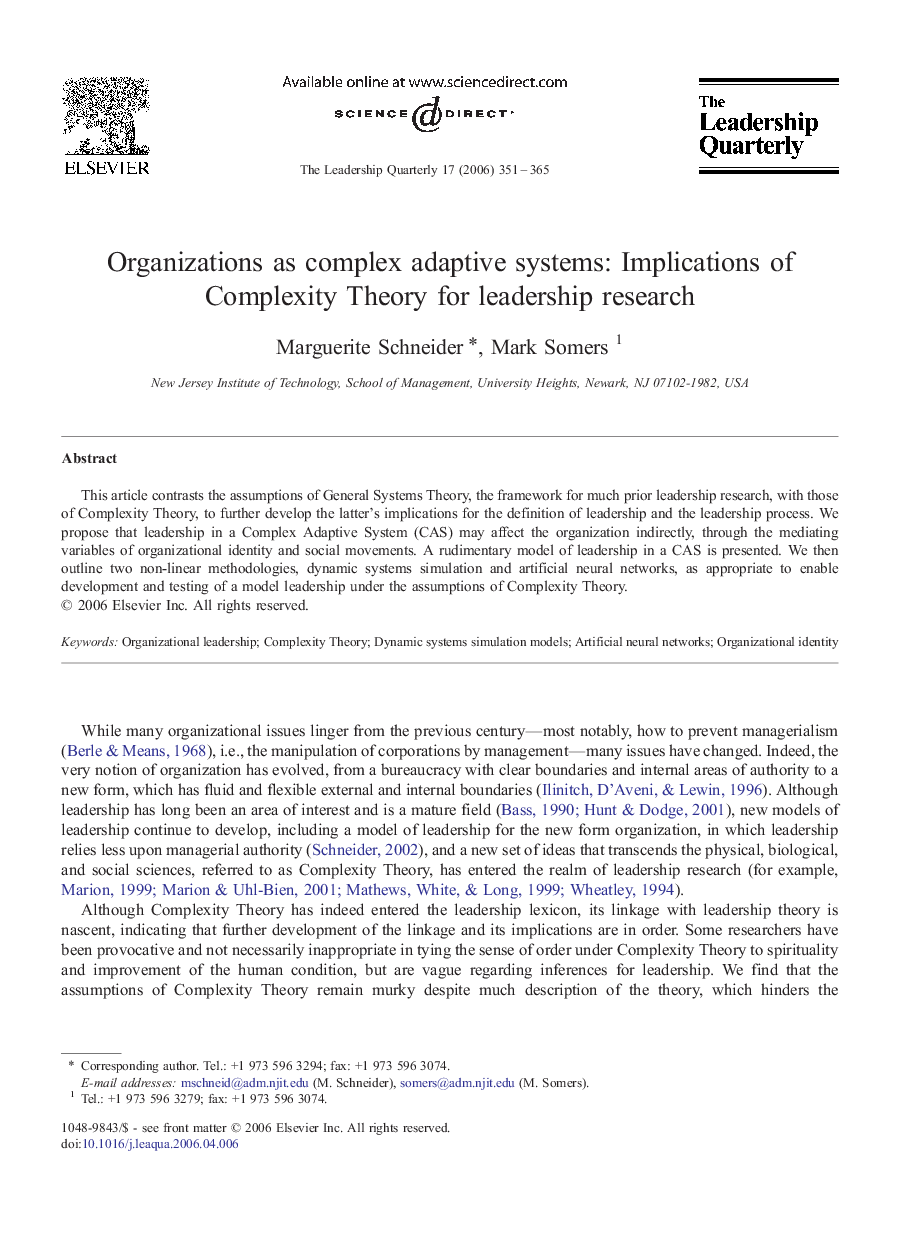| Article ID | Journal | Published Year | Pages | File Type |
|---|---|---|---|---|
| 888448 | The Leadership Quarterly | 2006 | 15 Pages |
Abstract
This article contrasts the assumptions of General Systems Theory, the framework for much prior leadership research, with those of Complexity Theory, to further develop the latter's implications for the definition of leadership and the leadership process. We propose that leadership in a Complex Adaptive System (CAS) may affect the organization indirectly, through the mediating variables of organizational identity and social movements. A rudimentary model of leadership in a CAS is presented. We then outline two non-linear methodologies, dynamic systems simulation and artificial neural networks, as appropriate to enable development and testing of a model leadership under the assumptions of Complexity Theory.
Keywords
Related Topics
Social Sciences and Humanities
Business, Management and Accounting
Business and International Management
Authors
Marguerite Schneider, Mark Somers,
